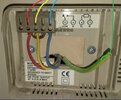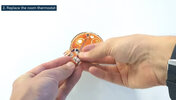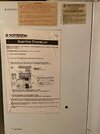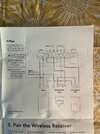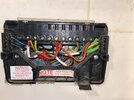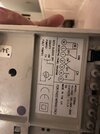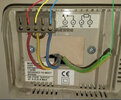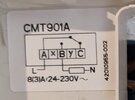- Joined
- 30 Dec 2022
- Messages
- 9
- Reaction score
- 1
- Country

Dear DIY, Professionals
First let me wish you all a happy new year
Despite of 100s of posts about Potterton wiring but here I am got a bit lost here about how to decommission PRT2 the way how Tado posted on their YouTube link.
Basically after I finished installing the receiver next to boiler went to old thermostat I set it to 30 to keep it always on meanwhile control actual temperature through new tado wireless stat.
Working fine but I want to ensure get it decommissioned just in case somebody touch it and ruin the circuit for me.
I am attaching the current wiring setup and picture how tado using compact splices to decommission similar stat
First let me wish you all a happy new year
Despite of 100s of posts about Potterton wiring but here I am got a bit lost here about how to decommission PRT2 the way how Tado posted on their YouTube link.
Basically after I finished installing the receiver next to boiler went to old thermostat I set it to 30 to keep it always on meanwhile control actual temperature through new tado wireless stat.
Working fine but I want to ensure get it decommissioned just in case somebody touch it and ruin the circuit for me.
I am attaching the current wiring setup and picture how tado using compact splices to decommission similar stat

